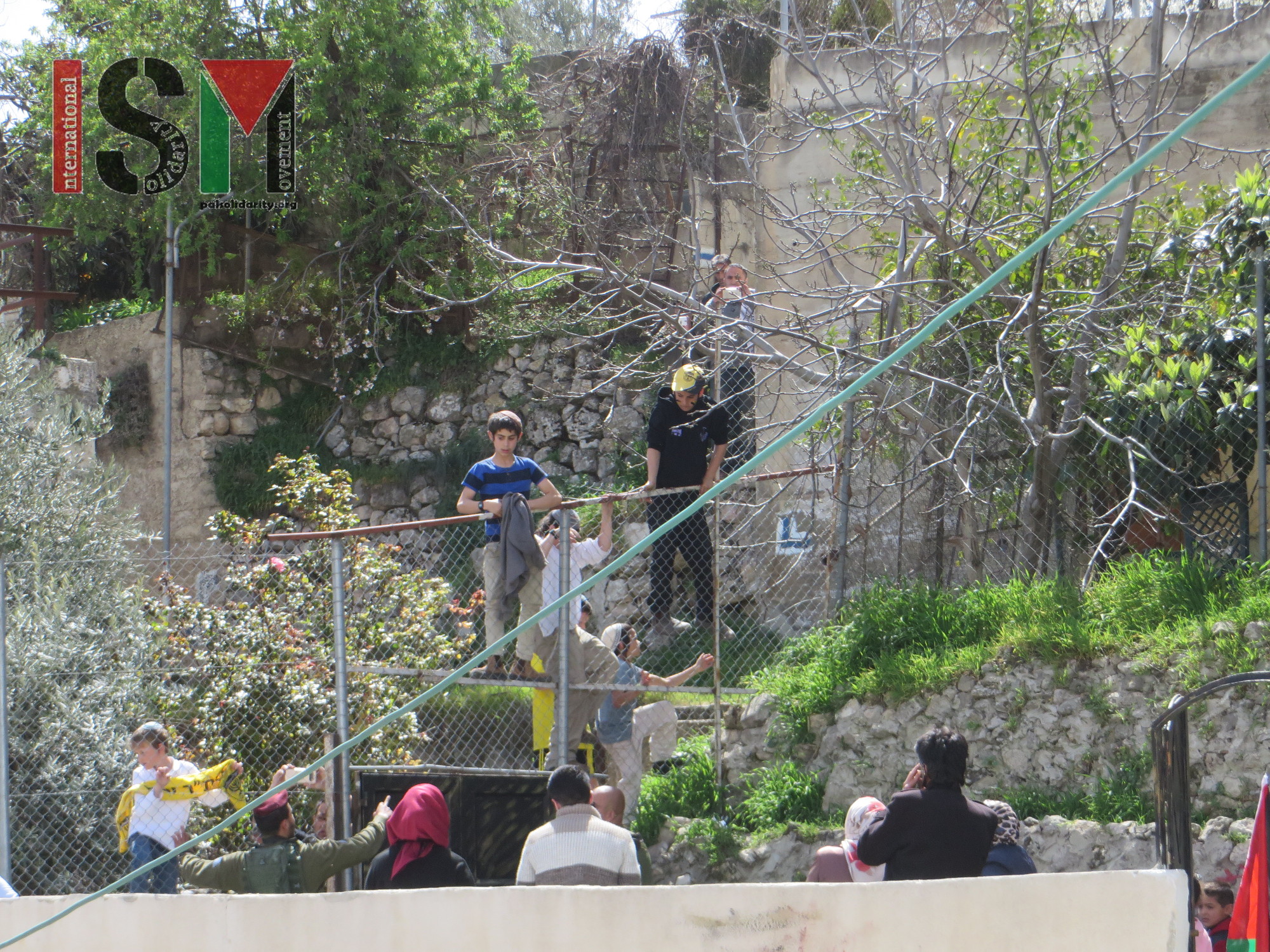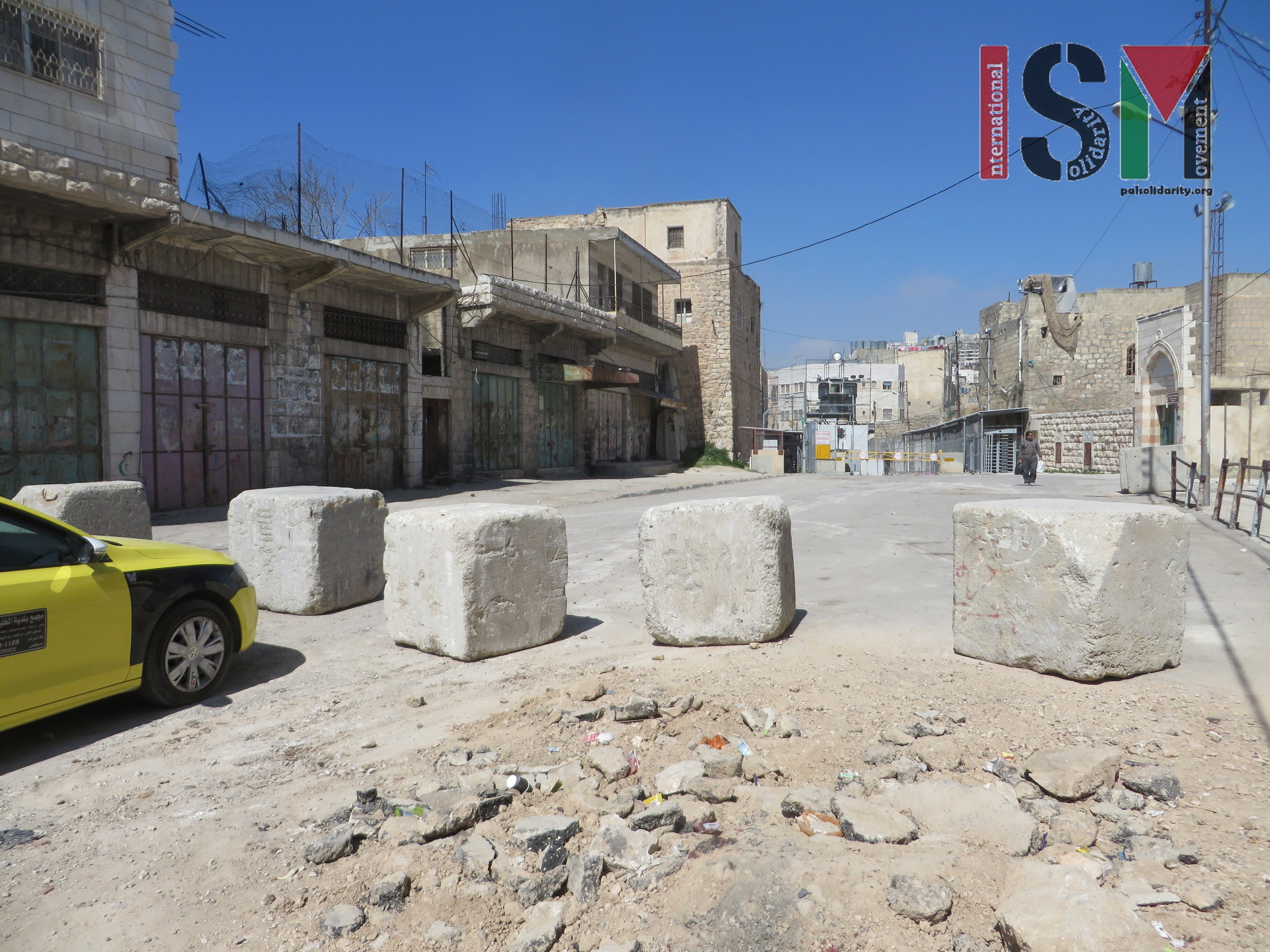Tag: Checkpoint
-

Israeli forces increase restrictions in Hebron neighborhood
2nd April 2017 | International Solidarity Movement, al-Khalil team | Hebron, occupied Palestine On Saturday night, Israeli forces expanded a road-closure near Shuhada checkpoint in occupied al-Khalil (Hebron), moving it further into the H1 area – that which is officially under full Palestinian control. After midnight on Saturday, 1st April 2017, Israeli forces began moving…
-

Curfew, harassment and break-in for Shuhada Street as settlers celebrate Purim
14th March 2017 | International Solidarity Movement, al-Khalil team | Hebron, occupied Palestine Israeli settlers on 12th March 2017 harassed and threatened Palestinians and attempted to break into Shuhada Street kindergarten, as the Tel Rumeida neighborhood in occupied al-Khalil (Hebron) was put under curfew for Palestinians so that settlers could celebrate Purim undisturbed by Palestinian presence.…
-

Step by step Israeli forces limit access to Ibrahimi mosque area
7th March 2017 | International Solidarity Movement, al-Khalil team | Hebron, occupied Palestine Israeli forces on Monday night installed more concrete blocks near Queitun checkpoint in occupied al-Khalil (Hebron) further restricting Palestinian freedom of movement. Israeli forces put a new line of cement blocks several meters away from Shuhada checkpoint, entirely blocking the access to…
